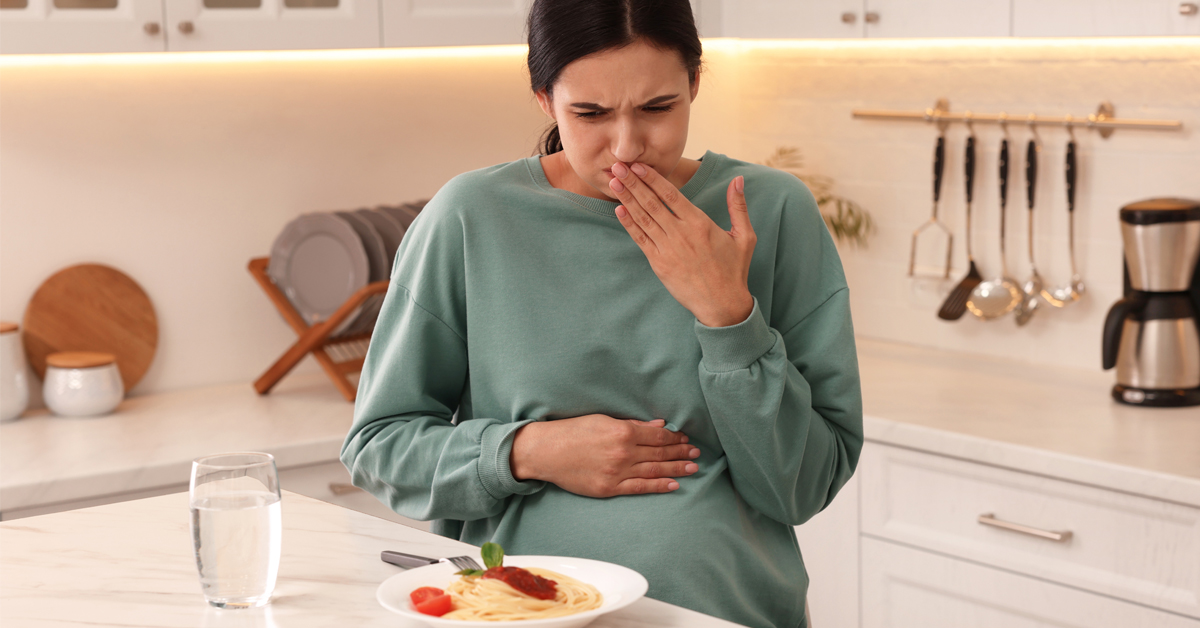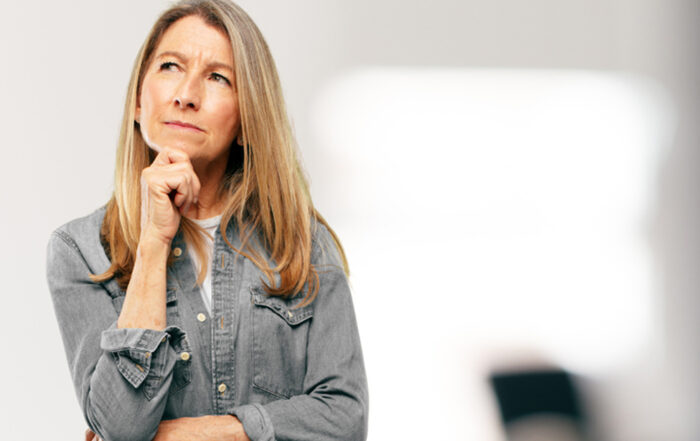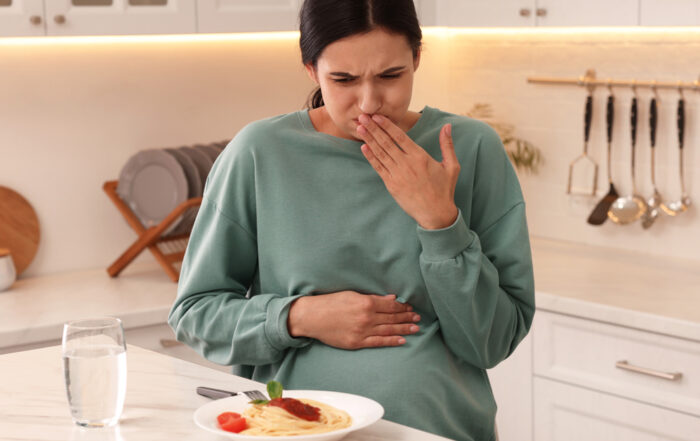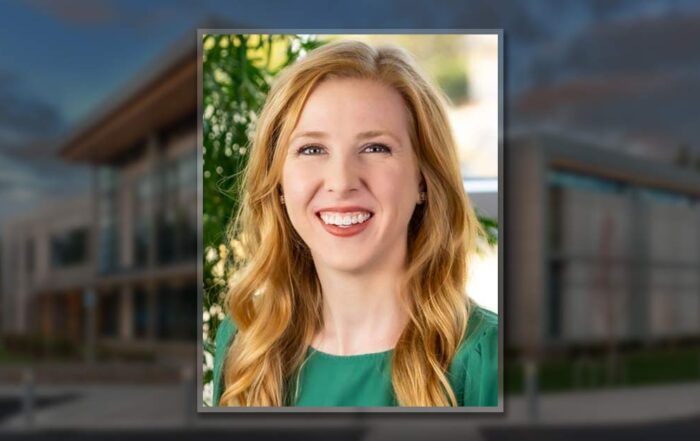
There’s no shortage of advice when you’re pregnant — everybody is eager to help you grow a happy, healthy baby. Diet tips are especially common, and it can be tough to decipher which advice you should follow.
Pregnant women need to increase their calorie and nutrient intake to help the baby develop and grow and to keep their bodies healthy throughout the pregnancy. Many people joke about eating for two, but pregnant women truly eat to fuel their bodies and nourish their growing baby.
Although it’s fun to think that extra calories mean extra sweets and treats, mother and baby need more healthy calories to support the baby’s healthy development. Dietary choices before getting pregnant, during pregnancy, and while breastfeeding affects the baby’s health even after they’re no longer breastfeeding.
The best calories for pregnant women are those gained by eating nutrient-dense foods. Nutrient-dense foods contain vitamins, minerals, and other healthy nutrients and very little added sugar, sodium, or saturated fat. Vegetables, whole grains, seafood, eggs, legumes (beans, peas, lentils), unsalted nuts and seeds, low-fat dairy, and lean proteins can all be healthy, nutrient-dense choices.
You may already be eating a healthy diet of lean proteins, whole grains, fruits and vegetables, and low-fat dairy, but did you know that some healthy foods become not-so-healthy when you’re pregnant? It’s true — some of your favorite healthy foods may not be safe options when you’re pregnant.
So which healthy foods should you avoid while pregnant?
Seafood High in Mercury
Seafood can be a healthy source of protein, vitamins and minerals, and omega-3 fatty acids that support eye and brain development. The downside is that some types of fish and shellfish may contain unhealthy mercury levels, which can harm your baby’s nervous system development.
For pregnant women, the FDA categorizes types of fish as “best” or “good” to eat or “avoid eating” based on mercury content. It recommends eating 2-3 servings from the “best” category per week or one serving from the “good” category. Click here for the complete list.
Seafood To Avoid
Larger, older fish typically have more mercury than their smaller counterparts. Popular fish to avoid when pregnant include:
- Bigeye tuna
- King mackerel
- Orange roughy
- Swordfish
Seafood That Is Safe To Eat
When you avoid higher-mercury options, seafood is still a healthy choice. Some options from the FDA “best” list include:
- Anchovies
- Atlantic mackerel
- Clams
- Cod
- Crab
- Freshwater trout
- Haddock
- Herring
- Oysters
- Perch
- Pollock
- Salmon
- Scallops
- Shrimp
- Squid
- Tilapia
Undercooked and Processed Proteins
Meat, meat products, fish, and eggs can be excellent sources of protein but can also be sources of bacteria if they aren’t thoroughly cooked. Pregnant women have a greater risk of catching bacterial food poisoning from undercooked foods and may develop a more severe reaction than before they were pregnant. Although rare, food poisoning can also affect the baby.
Keep meats and eggs safe with the following tips:
– Make sure all meat, including poultry, is fully cooked. Check the temperature with a meat thermometer to verify the internal temperature.
– Avoid lunch meats and hot dogs, or cook them until they’re steaming. They can pick up bacteria during processing.
– Avoid refrigerated meat spreads and pates. Canned versions are safer.
– Cook eggs until the yolks and whites are firm. Avoid foods that contain raw eggs, like eggnog, batter, and hollandaise sauce.
– Avoid raw seafood like oysters, mussels, and some types of sushi.
Unpasteurized Dairy and Juice
Dairy foods are an excellent source of calcium, but unpasteurized dairy foods can be a source of listeria bacteria. Skim milk, cottage cheese, and hard cheeses, like cheddar, are healthy dairy choices, but pregnant women should avoid soft cheeses unless they are labeled as pasteurized, like:
- Brie
- Blue
- Camembert
- Feta
- Gorgonzola
- Queso blanco or fresco
- Roquefort
Unwashed Produce
Fruits and vegetables are among the healthiest foods we can eat but can become contaminated with parasites and bacteria at any point in the growing, processing, shipping, or retail stages. In fact, the parasite toxoplasma can contaminate the soil the fruits and vegetables were grown in.
Parasites like Toxoplasma and bacteria like E. coli can affect your and your baby’s health. To keep your fruits and vegetables as safe as possible:
- Wash all raw fruits and vegetables thoroughly
- Peel fruits and vegetables to minimize your risk
- Cook fruits and vegetables to kill bacteria and parasites
- Avoid raw sprouts entirely
Adopt a Healthy Diet for You and Your Baby
A healthy diet has countless benefits for your health and your baby’s development. A diet rich in fruits and vegetables, whole grains, lean protein, and low-fat dairy supports a healthy mom and baby even after delivery. If you have any questions about your diet, reach out! We’re here to help.
Start your pregnancy care with a trusted OB/GYN today – schedule an appointment!
Find Your Care
Our team of OB/GYN specialists is ready to assist you. To schedule an appointment, please call us at 541-479-8363.



